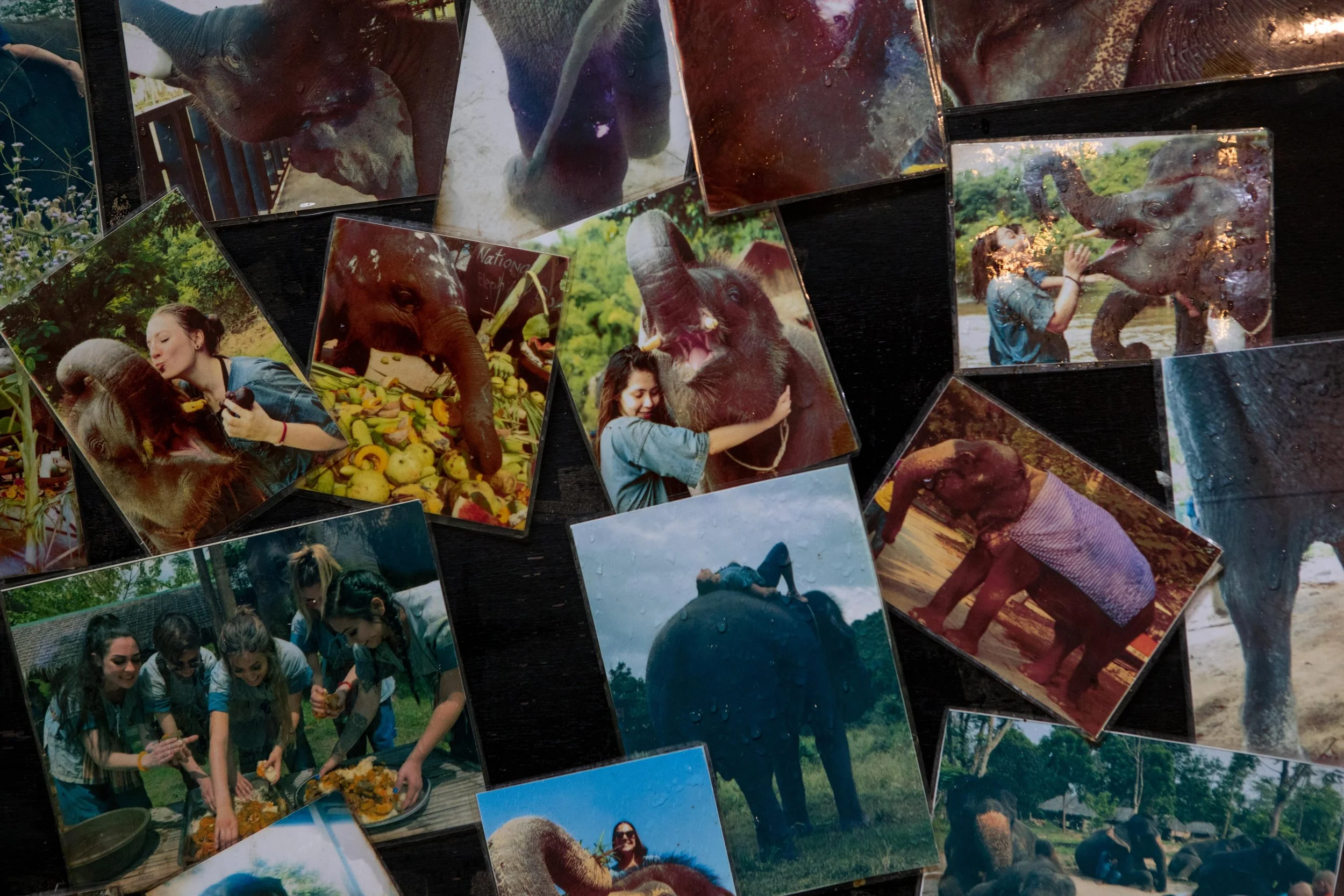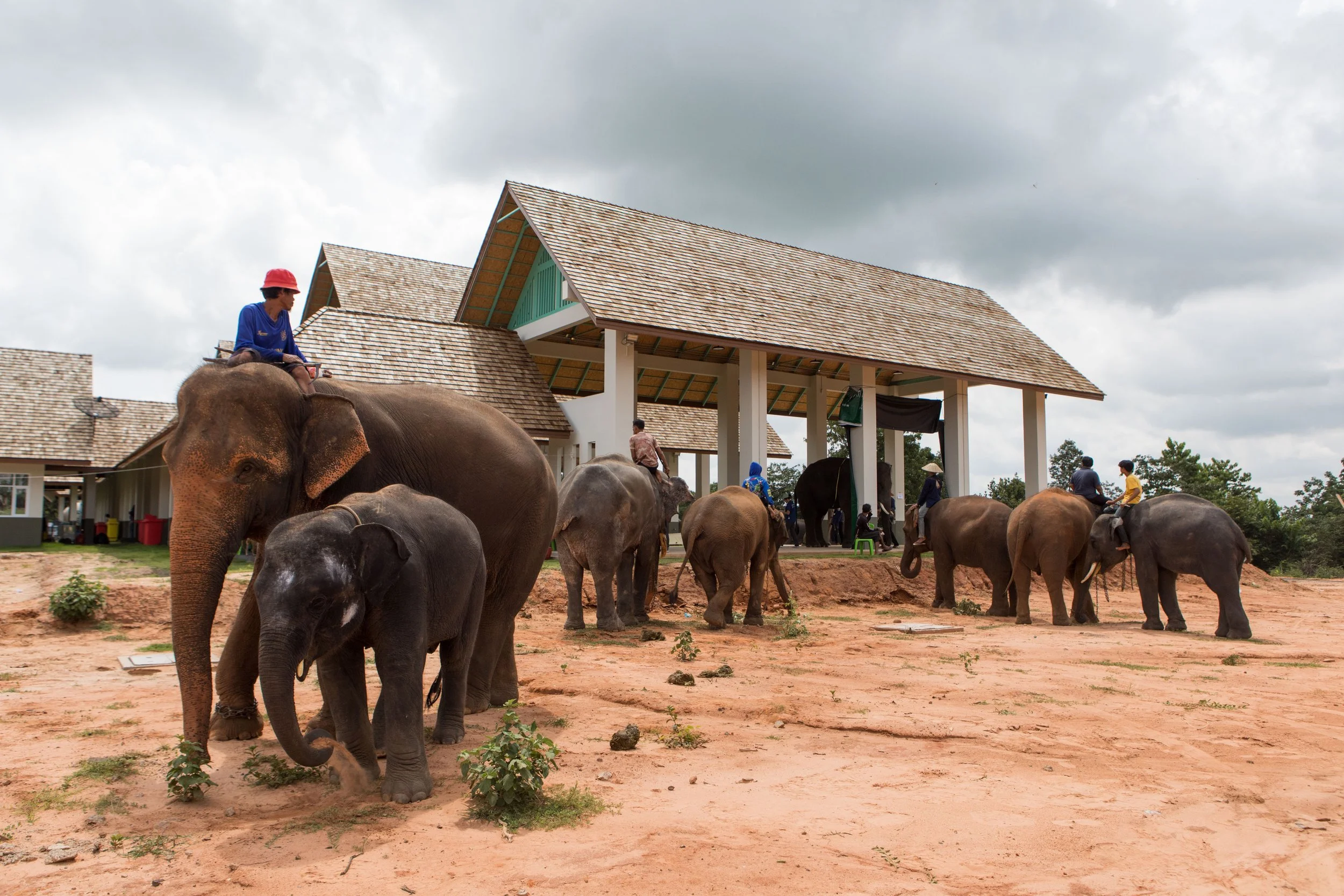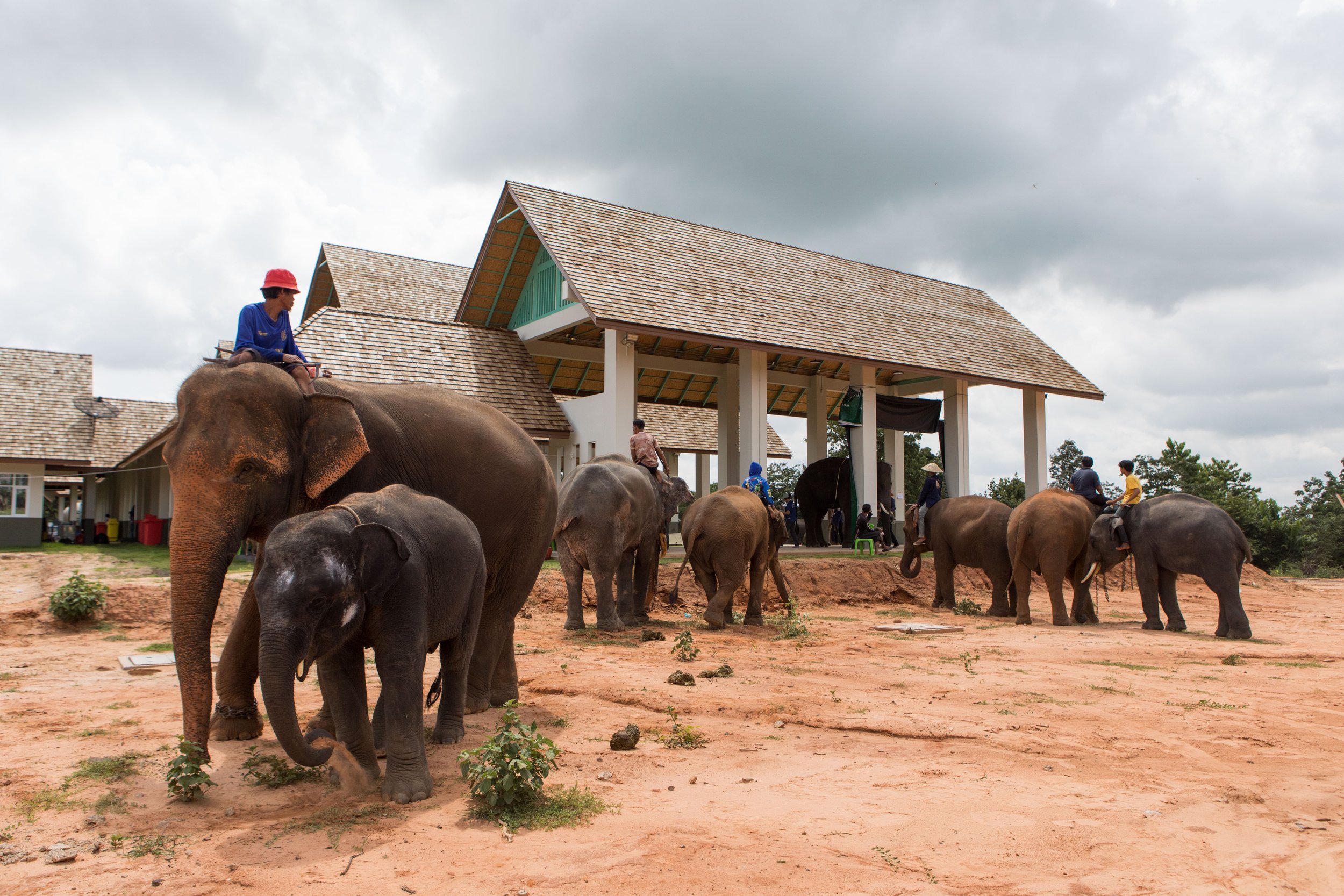Originally published here for National Geographic as
A Year Without Tourism: Crisis for Thailand’s Captive Elephants
The COVID-19 pandemic brought Thailand’s tourism industry to its knees, exposing the seams of an animal welfare and sustainability crisis.
With borders closed to tourists, the owners of nearly 4,000 captive elephants were left scrambling for ways to afford their high costs of care. The divisive issue of ethical tourism practices - whether or not activities like circus-style performance and riding were a part of a business model - began to determine which elephants across the country received the critical resources they needed to survive.



At the pandemic’s start, many working elephants began a dangerous migration on foot during the burning season,
as elephant camp managers that rented the elephants for tourism expelled them - and their mahouts - back to the owners’ villages
once they could no longer pay.
Some camps that owned their elephants were left to tie them up indefinitely,
leaving them underfed and under-stimulated without the appropriate income for staff, food, and medicine.
Many mahouts made sacrifices - like returning to their families, or full income - to continue caring for the elephants.
mahout (n.) - an elephant caretaker within a South or Southeast Asian context, often bonded with their elephant


Most elephant owners across Thailand faced a total loss of income.
Mahouts and owners had to find creative ways to source food - and alot of it.
A single adult elephant eats 150 to 300 kilograms (330 to 660 pounds) per day.
A group of Thai visitors stop at a roadside elephant camp selling hand-fed bananas. Thailand closed its borders to all incoming tourists for seven months, following another year of strict entry policies. After two years, there was an overall 98% decrease in tourism,
and 90% in tourism revenue - a loss equivalent to 85 billion USD.
Life looked different for one family whose three elephants moved home to Surin.
A mahout named Visanchon owned four elephants that worked in the Ayutthaya tourism industry. Three traveled back to Surin where they were kept at the family’s home until tourism bounced back.
His 12-year-old son wants to follow in his father's footsteps as a mahout and helps with the daily care of the elephants. As a family, they started a Youtube channel with videos about their elephants, which became their main source of income.
As a family, they have a Youtube channel that shares videos about their elephants. Like many mahouts who have begun Youtube channels in the area, it became a main source of income for Visanchon from January 2019, earning them between 3,000 THB and 19,000 THB monthly to help cover the elephants’ expenses. Their most popular video received almost 2 million views.
In Thailand’s ‘Elephant Village’, one royally-funded program provides critical support to 200 elephants.
Half of the 400 elephants in the Ban Ta Klang Elephant Village are supported with benefits from the Elephant Kingdom Project including monetary assistance, health care, and land access.
Originally intended to protect elephants from welfare-jeopardizing work such as begging or working illegally in the logging industry, the Elephant Kingdom Project is funded by the
Zoological Park Organization under Thailand’s Royal Patronage. It’s support was a critical lifeline
during the pandemic, but only one of two like it in the country.








Western donors support larger elephant sanctuaries that are considered 'ethical' - but smaller operations miss out.
Elephant Nature Park (ENP) - Thailand's most successful elephant rescue organization - has set the bar for ethics and sustainability, but its operating model and base of international donors are far out of reach for the vast majority of elephant owners across the country. Many smaller and family-owned elephant tourism businesses want to phase out practices such as riding, but lack the resources to restructure their businesses.
ENP founder Lek Chailert
The 250-acre Elephant Nature Park leveraged its success as one of Thailand's leading conservation and welfare-focused tourism companies to rescue 24 elephants from struggling owners during the pandemic, adding to the more than 100 elephants already in its care.
By tapping into their following of international supporters, they were able to stay afloat through creative fundraising, such as offering virtual ceremonies where the elephants were presented with food trays with customized messages.
One elephant camp used the tourism lull to change their entire structure.
After years of offering riding and circus performance to tourists, the Mae Sa Elephant Camp in Chiang Mai changed their model to mirror trending demands of a more welfare-friendly experience. By consulting with Lek Chailert of Elephant Nature Park and utilizing private funds, owner Anchalee Kalmapijit opened educational and observational reserves for their elephants, called The Chang 1 and 2.
Anchalee Kalmapijit - owner of the
Mae Sa Elephant Camp - is interviewed by some visiting Thai students.
The Chang 1 & 2
During the pandemic, the dedication of mahouts was crucial to the well-being of Thailand's elephants.
Chayanin "Charlie" Patchimtassanakal, an ethnically Karen mahout, lives in a Karen hill tribe village in Mae Wang. As a mahout that maintained his employment at a small, welfare-focused ‘eco-camp’, Charlie focuses on keeping his two adult elephants and one baby, Ronaldo,
fed and active both mentally and physically.
For most elephants and their owners, the struggle to survive would not end with the easing of lockdowns and the return of tourists.
The pandemic underscored the vulnerabilities in their dependence on tourism, revealing the urgent need for sustainable solutions. As Thailand navigates the path to recovery, the challenge remains to create a future where both elephants and their caretakers are no longer at the mercy of an unpredictable industry.

ขอขอบคุณทุกคนในประเทศไทยที่ทำงานเพื่อปกป้องช้าง แม้ว่าในการทำงานจะมีสถานการณ์ที่ท้าทายและซับซ้อนก็ตาม
Thank you to each and every person in Thailand working to protect the elephants, despite the challenging and complex circumstances.











































